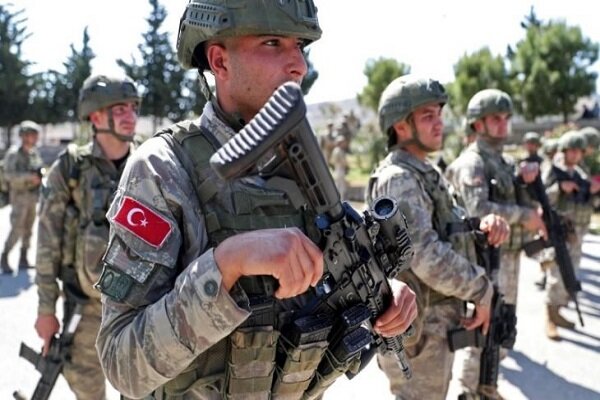Ahmad Abiyat

Despite the rapid progress in knowledge and dramatic changes in the globe, countries with expansionist ambitions are still following the path of the colonial era. In the midst of this situation, the countries do not abide by the laws and international norms, carrying their bloody record such as historical crimes.
Syria, which was facing a terrorist war waged by certain regional and Western countries, is being geographically gnawed by the Kurds who formed an autonomous administration motivated under the pretext of the elimination of the terrorist organization ISIS, and by the Turks, who, in the name of establishing safe areas, continue to impose new situation on West Asia.
Conflict of interests: The victims are the Syrian people
The People's Protection Units, the main force in the Syrian Democratic Forces, is the armed section of the Supreme Kurdish Committee that recruits Arabs, Kurds and Assyrians in its ranks, where about 40,000 to 50,000 soldiers served in this organization during the war in Syria. They all were from the neighboring countries where the Kurds are present and control dozens of thousands of square kilometers of the Syrian territory.
It established a self-administered region, which is envisaged to include more than three million citizens of Arabs, Kurds, Assyrians, Armenians, and other ethnicities.
Now, Turkey tries to play the role of guardianship and exercises patriarchal influence on the Syrian territory, where it has the right to fight in the name of the "People's Protection Units" of the Democratic Union Party in Syria. Turkey considers the militia an extension of the Kurdistan Workers' Party.
It also worked to control, in cooperation with Syrian armed groups, the areas east of the Euphrates in the military invasion known as "Euphrates Shield", "Olive Branch", "Spring of Peace", to extend its influence and incursion into a "safe area" with a length of about 120 km and a depth of 32 km inside the Syrian territory.
In northern Syria, Turkey's neo-colonial aspirations are to include the lands it captured in the recent invasions, where students learn the Turkish language and Turks run hospitals, and their growing role is obvious in Turkish traffic lights, Turkish-trained police forces, and post offices built by Turks.
The most important aspects of the Turkish occupation
On the one hand, Ankara exercised military control and planned to engineer a political situation that ensures that the Syrian local structures conform to Turkish policies.
Ankara considers the areas it occupies as a part of Turkey. Turkish government departments provide services in these areas with the support and assistance of the Turkish armed forces. The Turkish armed forces continue to be present in these areas and have established military bases.
The Turkish government is providing armed and militia groups in the area with training and logistical support at the highest levels.
On the other hand, Turkey wants to push the economy of the areas under occupation to work in line with Ankara’s hegemonic policies which require establishing a new structure.
They include most services such as transportation, communications, trade, education, language, symbols, media, and currency circulation to establish free industrial zones, which creates roads to connect them directly with the Turkish economy.
The most important of these steps is related to the demographic change of Turkification of the Syrian territory, in addition to the continuous restrictions on the people and the confiscation of their homes and properties in order to push those who remain to emigrate.
Insistence on education in Turkish language and changing the curricula according to Turkish mentality.
The insistence came after Turkish authorities took important decisions to refuse any teacher in universities, colleges, institutes, schools and research centers in Turkish-controlled areas if he did not meet the conditions for full knowledge of the Turkish language.
This is considered a real threat and a practice of stripping people of their identities. This process is continuing under the control of the Turkish armed forces to alienate them from their geography, people, history, and culture.
These changes involve many places and institutes, including teaching, curricula, schools, names of cities, villages, suburbs, streets and squares, culture, history, and the Syrian national currency.
Another malicious attempt that threatens the identity of these areas is the fact that the Turkish flag was raised there.
Turkish identity cards were published among the population, salaries were paid in Turkish lira, and everything was linked to Turkey so that these areas became like any region or state inside Turkey.
All these steps in undermining the capabilities of the Syrian people remind us of the French occupation and distortion and malformation of the Algerian history, including the falsification of the geography of the country, encouragement of immigration, obliteration of the Arab and Islamic identity, the Francization of education and administration curricula, the fight against the institute of Arab education, teaching the French language at the primary levels, and making Arabic a foreign language and optional need.

No comments:
Post a Comment